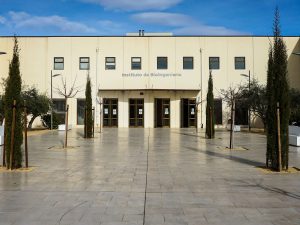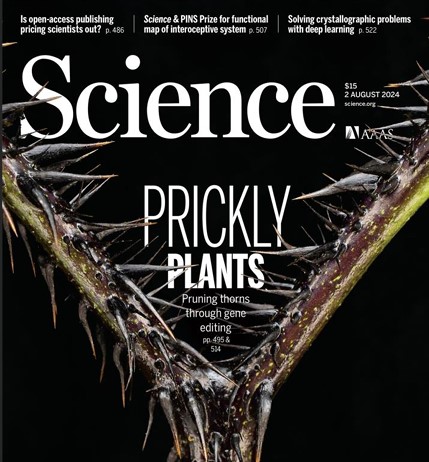
- October 23, 2024
- Bioengineering Institute Conference Room
- Elche, España
- https://bioingenieria.umh.es
Throughout the evolution of plants, some species have developed spines to defend themselves against herbivorous animals. This trait, however, hinders the harvesting and packaging of cultivated plants, limiting their productivity. The genetics of plant spine formation has been unraveled by an international consortium and recently published in the highly prestigious journal Science, which featured it on its cover. The conference “Genetics of plant spines” will be held on Thursday, October 24, at 12:00 pm, in the Assembly Hall of the Institute of Bioengineering (IB) of the University Miguel Hernández (UMH).
The lecturer, Jaime Prohens Tomás, is Professor of Genetics, researcher at the University Institute for the Conservation and Improvement of Valencian Agrodiversity (COMAV) and director of the Department of Biotechnology at the Polytechnic University of Valencia. The seminar was organized by José Luis Micol Molina, professor of Genetics, researcher and member of the founding group of the IB, and director of the Department of Applied Biology of the UMH; it is an activity of the Master in Biotechnology and Bioengineering and the Doctoral Program in Bioengineering of the UMH.
Prohens and his collaborators have subjected several species of cultivated and wild plants of the genus Solanum, to which others such as tomato, potato and eggplant belong, to genetic and genomic analyses. They have established that mutations in PRICKLELESS (PL), a member of the LONELY GUY (LOG) family of genes involved in the synthesis of plant hormones called cytokinins, cause the loss of spines. They have also studied evolutionarily very distant lineages of plants with thorns: ornamentals such as the rose or spider flower, fruit trees such as jujube (also known as the thorn of Christ), and certain cereals that have small thorns on the edges of their spikes; the important role of LOG genes in the formation of thorns has thus been confirmed.

